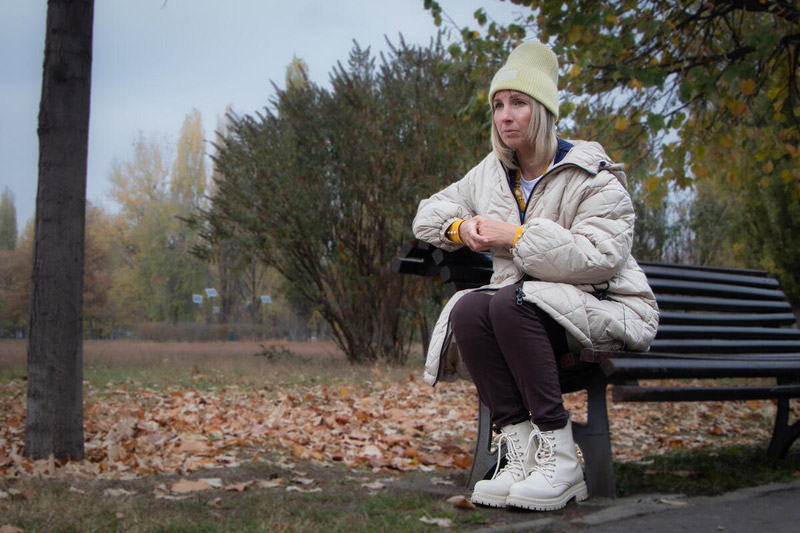SEATTLE (December 13, 2022) — As winter temperatures drop, a new report by global humanitarian organization World Vision reveals a concerning trend likely to affect displaced families from Ukraine, Syria and Afghanistan: female-headed households disproportionately struggle to cope with harsh winter conditions. Women who head these family units are often forced to take desperate measures, and the stress of the situation can have detrimental impacts on their mental health.
World Vision’s new report Out in the Cold examines how this trend will likely impact three of the world’s biggest humanitarian crises as displaced female-headed households from or within Ukraine, Syria and Afghanistan will seek to cope with the harsh climate conditions of winter.
The study finds that the rising costs of commodities and winter essentials puts displaced female-headed households at greater risk than other vulnerable groups because of the social stigmas they face, and because help is often out of reach.
“Accessing income creates several unique challenges for women in displacement camps, the foremost of these being the cultural and gender norms that increase stigma around women’s economic activity,” said Eleanor Monbiot, World Vision’s Middle East and Eastern Europe Regional leader. “Displaced women who are heads of household live double lives, where they must fulfil both domestic duties and generate income outside the home, but that is made very difficult as displacement camps and the closed communities they live in provide limited markets for their paid work and for the services they can provide.”
In Ukraine, ongoing conflict has damaged crucial supply chains and restricted access to services and goods. Critical civilian infrastructure has been damaged or destroyed, including approximately 1,900 educational facilities and nearly 300 health facilities.
Meanwhile, in Moldova and Georgia, where 90% of those fleeing the war in Ukraine are women and children, the weather is cold and many people are struggling because of multiple challenges like the COVID-19 pandemic, high gas prices and inflation.
Women “are more vulnerable to the upcoming winter because they have increased responsibilities at home, with very little income coming from cash and food assistance. They cannot accommodate their winter needs,” says Michel Gerges, World Vision’s cash, voucher program and food project manager in Moldova.
The report found that female-headed households attempt to cope with poverty in the winter months by reducing food consumption, taking on dangerous debt burdens, sending their underage children to work, and selling their underage daughters into marriage or sex work. As temperatures hit life-threatening lows, female heads of household are also forced to make the choice between heating their homes and buying food — or else putting their health and their family’s health at risk by using last-resort heating methods.
“Displaced families from Ukraine are now facing their first harsh winter, but for Syrian and Afghani displaced women, this is just another year of living in freezing temperatures where they are unable to buy fuel, wood, electricity or gas to heat their shelters during winter. As a result, they resort to using unsafe methods of heating and cooking which are unhealthy and extremely unsafe,” said Monbiot. “They are burning plastic bags and old clothes to stay warm. These practices are having chronic impacts on their health and the health of their families, as well as on the environment, and significantly increasing the risk of fires in their communities.”
According to the new data, many female-headed households also face challenges accessing health facilities throughout the year and especially in winter due to transportation barriers, flooding and distance. When health facilities are available, lack of medicines and the high cost of care prevent them from accessing needed services.
Furthermore, cold weather, the inability to keep their children warm and properly fed, and inadequate housing take a toll on female family heads’ mental health; tragically, this parental stress can result in physical and emotional violence, neglect and subsequent behavioural issues among children.
World Vision’s report recommends, above all, the prioritization of displaced female-headed households in winterization assistance, including the provision of seasonal cash assistance empowering them to provide for their families. In addition to cash assistance, immediate winterization provisions must be prioritized, such as distribution of reliable, eco-friendly fuel and heating devices, distribution of winter clothing and blankets, and shelter insulation. And finally, the report recommends prioritizing access to mental health support services for women during the winter.
“We’re calling on the international community to step up and prioritize cash winter assistance for displaced female-headed households in Ukraine, Syria and Afghanistan,” Monbiot said. “The world must not forget these women. Their plight does not disappear as their stories disappear from news headlines. They have already been through unimaginable trauma; they need and deserve continued support now and in the future.”
